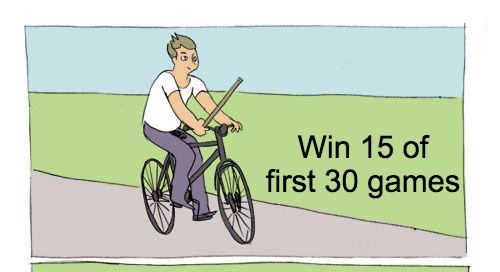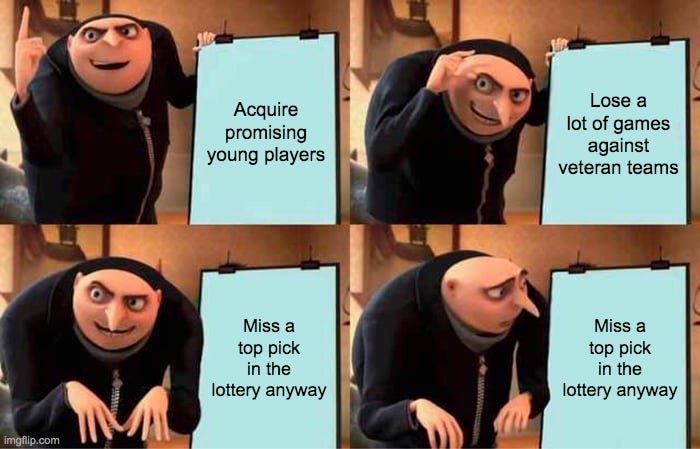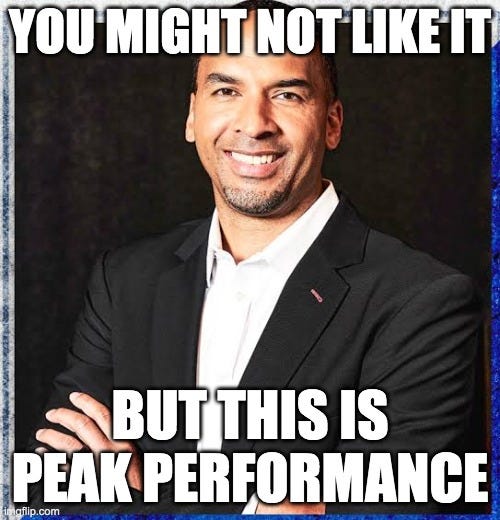Yesterday, a lot happened. The stock market jumped on news of the Trump Administration lowering tariffs on Chinese goods. The final American hostage in Gaza was released by Hamas. The Qatari government gifted Trump a new jet worth hundreds of millions of dollars.
Of course, all of this pales in comparison to the earth-shattering NBA Draft lottery.
For the uninitiated, the lottery determines the selection order for the NBA Draft, which takes place in June. Unlike the NFL, where the worst team gets the best pick, the NBA uses a lottery to somewhat randomize the draft order. This is meant to discourage “tanking,” a practice where teams lose on purpose to get a higher draft selection.
In the NBA’s system, the worst three teams all have equal odds of getting the top pick, at ~14%. The fourth worst has a 12.5% chance, the fifth worst has a 10.5% chance, and so on. In other words, it’s worth it to lose, but only up to a certain point. Of course being bad is still “better” than being mediocre - the worst team in the league is guaranteed a top five pick, while the least bad team in the lottery will almost certainly get the fourteenth pick.1
However, the lottery has a funny way of being unpredictable. The worst NBA team hasn’t won the lottery since 2018. In fact, the worst NBA team has now drawn fifth (its own worst possible outcome) for three straight years! This feels wrong, but it’s not too shocking: teams are truly tanking for the slightest edge in lottery odds. The worst team’s odds to draw in the top four are a little better than 50/50, better than nothing, but not enough to make a poor result shocking.
In some ways, this shows that the lottery works, since teams aren’t being rewarded for being awful.
Two years ago, 7’4 (!) French phenom Victor Wembanyama was drafted to the San Antonio Spurs after they jumped a full six spots in the lottery.2 That was a shocker. Then, last year, the Atlanta Hawks jumped nine spots to win the lottery. Even bigger shocker, but not a huge story because the incoming group of rookies didn’t have an attractive star.
This brings us to last night, when your very own Dallas Mavericks jumped ten spots, all the way from 11th. If I had to describe my reaction, it would be appall and disappointment.
You might remember the Mavericks as the team I wrote about twice this year: once, because their GM, Nico Harrison, traded their star player in a move which apparently had zero semblance of risk analysis, and again, when I criticized Harrison’s apparent inability to admit that he had been wrong. Yes, that same Mavericks team, and that same GM, were rewarded for their ineptitude with the #1 pick for a stacked draft, headlined by Maine sensation Cooper Flagg.
This is by far the worst outcome. No consequences for actions. One could argue that this rewards a fanbase that suffered the distressing lost of their franchise guy earlier this year, but one could also argue that this rewards a GM who served Dallas’s favorite superstar on a silver platter to the LA Lakers.
I guess the bright side is that the fans who were so tortured by the loss of their star that they burned jerseys and held a funeral outside of their stadium have been given a replacement, and I guess I’m happy for them. Still, things weren’t supposed to turn out this way. Teams like Utah, Washington, and Charlotte need a leader but, instead, they’re walking away with consolation prizes and more bad years ahead.
I think we can learn two things from this travesty:
We all have trouble comprehending probabilities.
Failing upwards really can happen in real life.
The least bad team is the non-playoff team with the most wins. All of the playoff teams are left out of the lottery and just pick based on their records.
In other words, they had the seventh-worst record but won the top pick despite the slim odds.






This reminds me of how in Mario Kart, you’d rather be 11/12th place and get a Bullet Bill than 10th with no chance.
But if you’re actually good at the game, unlike myself, maybe you’d rather just stay in/near the lead.